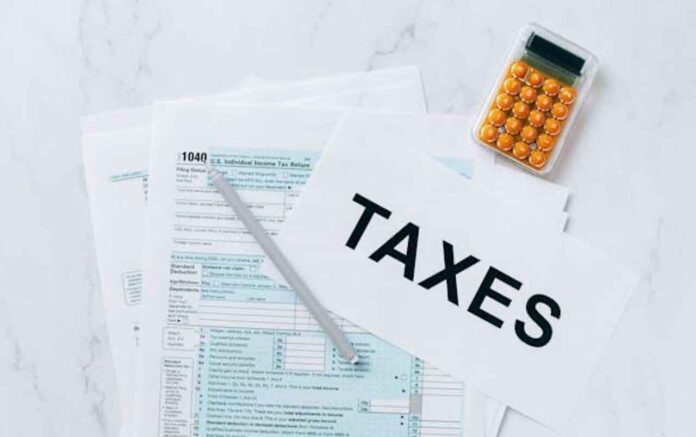The Canadian gambling industry is a booming sector, with casinos, both physical and online, attracting millions of visitors each year. While the excitement of winning big is a major draw, the tax implications for both casino businesses and gamblers are an important but often overlooked aspect.
In this comprehensive guide, we’ll delve into the intricacies of casino taxation in Canada. We’d be looking at how various regulations influence brick-and-mortar and online casinos alike, using Gigadat casinos as a case study. Because Gigadat is a repository of popular online crypto casinos in Canada, it gives a blanket overview of the use of cryptocurrency as an alternative to fiat and how its fast “withdrawal speed, bonus value, games quality, customer support, trust, licensing” affect consumer choice amidst the tax levied on businesses in the industry.
This article covers everything from the different types of taxes levied on casino businesses to the tax treatment of players’ gambling winnings.
Understanding the Tax Landscape
Canada employs a federal-provincial tax system, where both the federal government and individual provinces levy taxes. This means casino businesses are subject to taxes imposed by both entities. Here’s a breakdown of the key players:
Federal Government: The federal government collects income tax on the net profits of casino businesses. This is a standard corporate income tax rate that applies to all businesses operating in Canada.
Provincial Governments: Each province with casinos has its unique system for taxing these establishments. These taxes can vary significantly depending on the province and the type of gambling activity offered.
Here’s a closer look at the two main types of taxes levied on casino businesses in Canada:
1. Federal Income Tax
All casino businesses in Canada are subject to the federal income tax rate, currently set at 15% on the first $500,000 of taxable income and 27% on any amount exceeding that. This tax is applied to the net profit of the casino, which is calculated by subtracting all allowable business expenses from the gross revenue generated from gambling activities.
2. Provincial Taxes
Provincial taxes on casinos can be categorized into two main types:
Gaming Taxes
These taxes are directly related to the amount of money wagered at the casino. They can be structured as a flat tax on gross revenue (e.g., a percentage of total wagers) or a graduated tax that increases with the amount wagered. Specific rates and structures vary by province.
Here are some examples:
Ontario: Ontario levies a variable tax rate on slot machine revenue, ranging from 18% to 55% based on the machine’s win percentage. Additionally, a 13.5% tax applies to table game revenue.
British Columbia: British Columbia imposes a 15% tax on gross gaming revenue from all casino activities.
Facility Fees or Levies: Some provinces also charge casino businesses annual licensing fees or levies based on the size and location of the facility.
Here’s a table summarizing the tax structures in some Canadian provinces with casinos:
| Province | Gaming Tax | Facility Fee/Levy |
| Ontario | Variable rate based on win percentage (slots) & 13.5% (table games) | N/A |
| British Columbia | 15% on gross gaming revenue | N/A |
| Alberta | 10% on slot machine revenue, 8% on table game revenue | Varies by location |
| Manitoba | 10% on slot machine revenue, 8% on table game revenue | Varies by location |
Important Note: This table is not exhaustive, and other provinces with casinos may have different tax structures. It’s recommended that you consult the specific gambling regulations of each province for detailed information.
Additional Tax Considerations
Beyond the main taxes mentioned above, casino businesses may also be subject to other taxes, depending on their specific operations:
Sales Tax (GST/HST): In provinces with a Harmonized Sales Tax (HST), casinos may need to collect and remit HST on certain goods and services they offer, such as meals or beverages served at restaurants within the casino.
Property Tax: Like any other business, casinos pay property tax on the value of the land and buildings they own or lease.
The Impact of Taxes on Casino Businesses
Taxes significantly impact the profitability of casino businesses. High tax rates, particularly on gaming revenue, can limit the amount of money available for investment, expansion, and job creation. Additionally, complex tax structures can add administrative burdens to casino operations.
Strategies for Managing Tax Liabilities
While casino businesses have limited control over the tax rates set by the government, they can implement some strategies to manage their tax liabilities effectively:
Maximizing Deductions: Casinos can minimize their taxable income by maximizing allowable business deductions. This includes expenses related to labor, marketing, advertising, and maintenance.
Tax Planning: Consulting with tax professionals can help identify opportunities to optimize tax planning and potentially reduce tax burdens.
The Role of Taxes in Regulating the Gambling Industry
According to Michael Lichti, Binal Shah, and Fabio Barbagallo, taxation plays a crucial role in regulating industries in Canada. High taxes on casino profits serve as a deterrent to potential illegal gambling operations that might not comply with regulations. Additionally, revenue generated from casino taxes helps fund social programs and government initiatives.
Recent Developments in Casino Taxation
The Canadian casino industry is not static, and neither is the taxation landscape. Here are some recent developments that casino businesses and gamblers should be aware of:
Focus on Responsible Gambling
Provincial governments are increasingly implementing tax policies that encourage responsible gambling practices.
Shifting Tax Structures
Some provinces are exploring alternative tax structures to diversify their revenue streams. This could involve introducing a combination of fixed and variable gaming taxes based on factors like profitability or type of game.
Impact of Online Gambling
The rise of online offshore casino gambling and the ease it affords the everyday user poses a challenge for traditional brick-and-mortar casinos. Some provinces are introducing online gambling regulations and levying taxes on online gaming operators to create a level playing field with physical casinos.
The Future of Casino Taxation in Canada
Predicting the future of casino taxation in Canada is challenging. However, some potential trends can be anticipated:
Increased Scrutiny
As the gambling industry evolves, governments may further scrutinize casino operations to ensure tax compliance and responsible gambling practices.
Focus on Technology
The integration of technology into casinos, such as cashless gaming systems, might lead to changes in how taxes are calculated and collected. Additionally, the growth of online gambling could see further development of online gaming tax regulations.
Balancing Revenue and Regulation
Governments will likely continue to balance the need to generate tax revenue from casinos with the need to regulate the industry effectively to protect public health and safety.
Conclusion
Casino businesses in Canada operate within a complex tax environment. Understanding the various federal and provincial taxes levied, along with how they impact profitability, is crucial for these businesses. As the industry evolves and technological advancements emerge, the landscape of casino taxation may also change. Staying informed about these developments will be essential for both casino operators and interested individuals.







